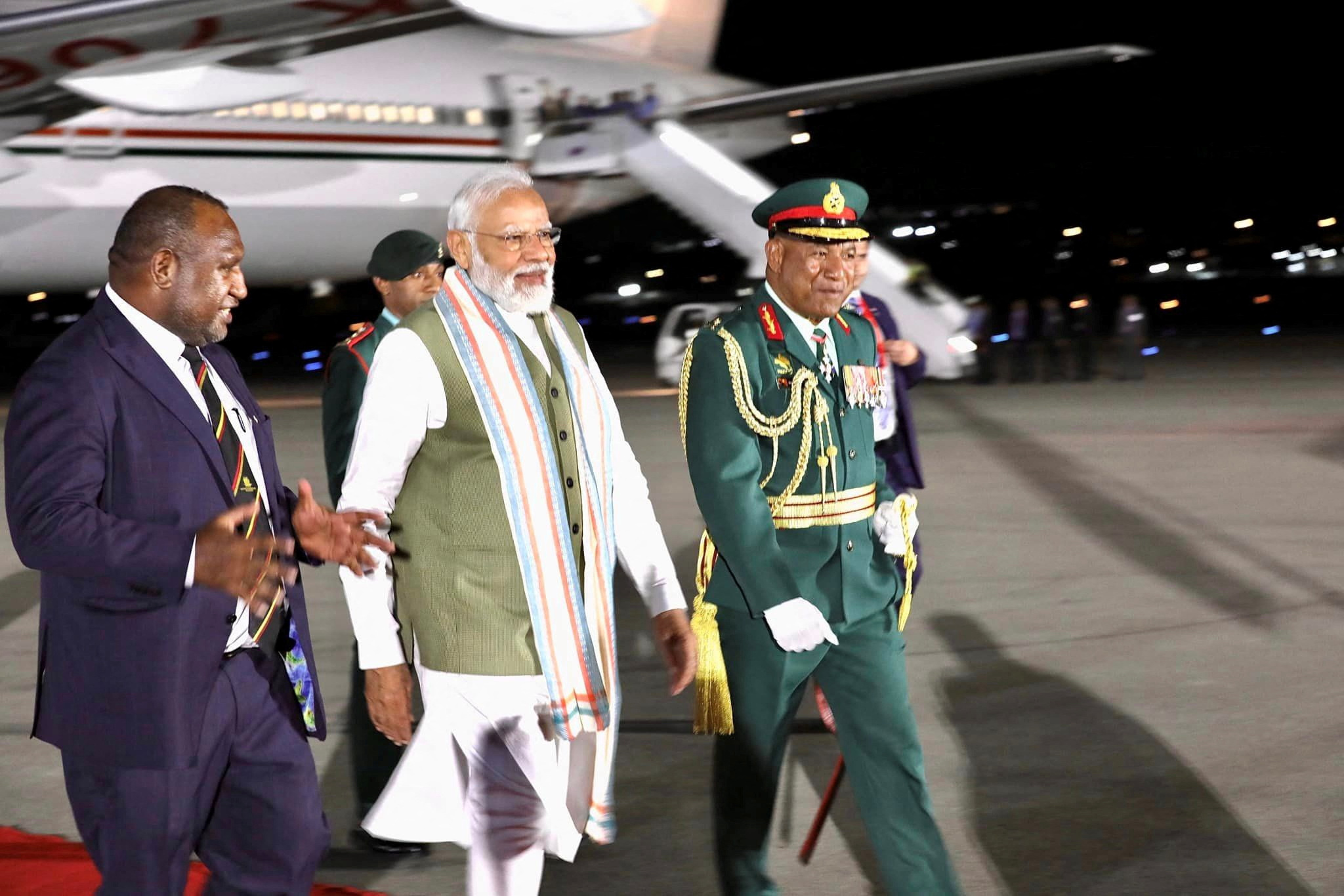
[1/2] Prime Minister of India Narendra Modi is greeted by Prime Minister of Papua New Guinea James Marape at Jackson International Airport, in Papua New Guinea on May 21, 2023. Papua New Guinea …
(Reuters) – U.S. Secretary of State Antony Blinken said a defense cooperation agreement signed with Papua New Guinea on Monday would expand the capabilities of the Pacific island nation and make it easier for the U.S. military to train with its forces.
Blinken and Indian Prime Minister Narendra Modi held separate meetings with 14 Pacific Island leaders in Papua New Guinea’s capital Port Moresby, pledging to support the region’s priorities in health, development and climate change.
The United States and its allies seek to deter Pacific island nations from establishing security relations with China, a growing concern amid tensions over Taiwan, and after Beijing signed a security agreement with the Solomon Islands.
Pacific island leaders, whose territory spans 40 million square kilometers (15 million square miles) of ocean, have said rising sea levels caused by climate change are their most urgent security priority.
Blinken told PNG Prime Minister James Merap that Washington will deepen its partnership in all areas with Papua New Guinea, and that he expects partnerships with American companies to bring in new investments worth tens of billions of dollars.
After university students protested the defense agreement on Monday, “there’s nothing to be afraid of,” Merab said at a joint news conference with Blinken.
He said the agreement modernized existing US military relations, and “has nothing to do with China.”
“We have a healthy relationship with the Chinese government and they are two important trading partners,” Merab said.
On Sunday, Merab said the defense agreement would see an increase in the US military presence over the next decade, while the US State Department said it would strengthen regional security.
“Defense cooperation has been forged by the United States and Papua New Guinea as equal and sovereign partners,” Blinken said at the signing ceremony.
Blinken said he will work to expand Papua New Guinea’s defense capacity to enhance humanitarian assistance and disaster response, and to facilitate the training of US and Papua New Guinea forces together.
In Beijing, Chinese Foreign Ministry spokesman Mao Ning said China had no objection to mutually beneficial cooperation with Pacific island nations such as Papua New Guinea, but added: “What we need to be careful about is engaging in geopolitical games in the name of cooperation, we believe Also that no collaboration should target any third parties.
Find out what’s going on
The United States and Papua New Guinea have entered into a separate agreement on increased monitoring of Papua New Guinea’s exclusive economic zone through US Coast Guard patrols, to protect its economy from illegal fishing.
Blinken said the United States will provide $45 million in the new money as it works with Papua New Guinea to enhance economic and security cooperation, including protective equipment for the Papua New Guinea Defense Force, mitigating climate change and tackling cross-border crime and HIV/AIDS. AIDS.
Blinken headed the US delegation to Papua New Guinea in place of President Joe Biden, who cut short a trip to Asia to deal with the US debt ceiling crisis.
Addressing the 14 Pacific Island leaders, Blinken said he was carrying an invitation from Biden to return to Washington in the fall for a second summit after the inaugural meeting hosted by the White House last year.
Modi told the Indo-Pacific Islands Cooperation Forum that India would be a reliable development partner and was committed to a “free, open and inclusive Indo-Pacific”.
“We are ready to share our capabilities and expertise in digital technology, space technology, health security, food security, climate change and environmental protection,” he said.
Modi said the Quartet leaders of Australia, the United States, Japan and India agreed in Japan over the weekend to increase cooperation with the Pacific.
In Papua New Guinea, the US has also signed a renewed strategic agreement with Palau, known as the Agreement of Free Association (COFA), and will sign another agreement with Micronesia on Tuesday, under which the US is responsible for the two countries’ defense and achieving continued access. to vast expanses of the Pacific Ocean.
Blinken said Washington is looking forward to entering negotiations on a third COFA, with the Marshall Islands, “very soon,” and said that under the three agreements, the United States would commit $7.1 billion over 20 years.
Biden’s negotiator Joseph Yun told Reuters on Saturday that he hopes to close a deal with the Marshall Islands in the coming weeks.
(Reporting by Kirsty Needham) in Sydney; Edited by Lincoln Feast
Our standards: Thomson Reuters Trust Principles.

“Lifelong food lover. Avid beeraholic. Zombie fanatic. Passionate travel practitioner.”
